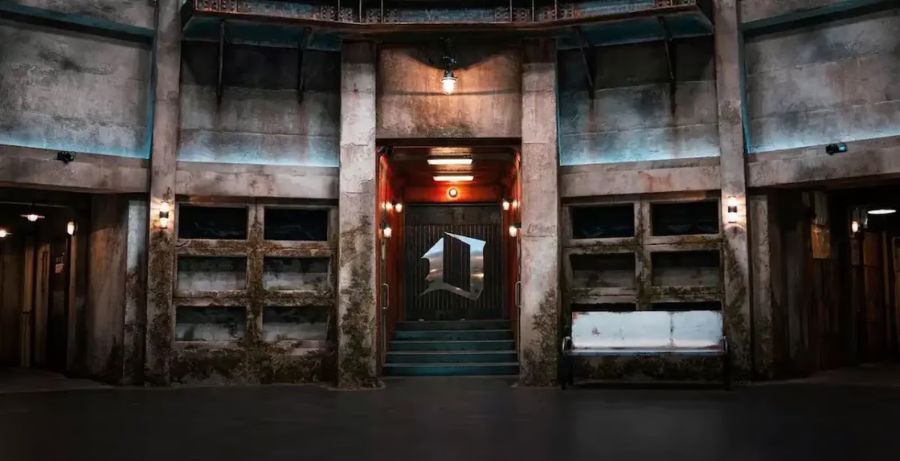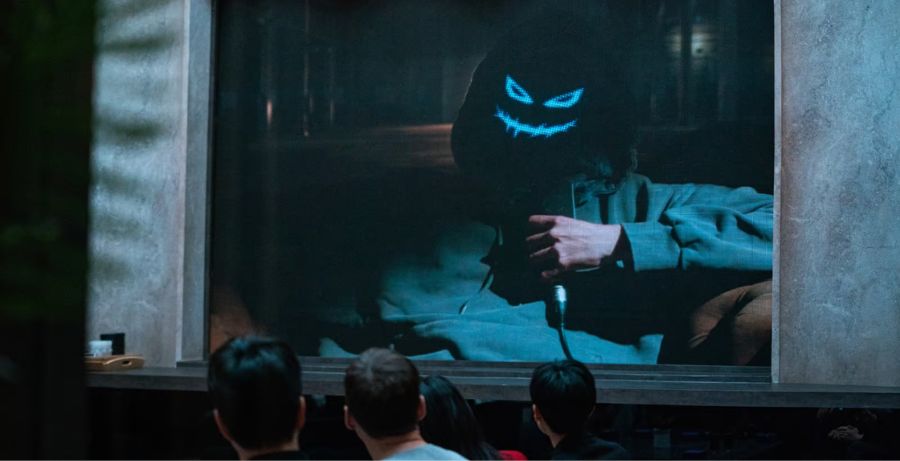The Devil’s Plan is a new Korean reality competition created by Jeong Jong-yeon that sees players trying to earn the largest collection of special coins dubbed pieces. The two players with the largest collection of pieces at the end of seven days will face off for the final cash prize. How big is the prize? Well, that depends on how well the players can work together to grow the pot. But by the end, up to 500,000,000 Won (roughly $369,743. US) could be at stack. After watching the nine currently available episodes, I wanted to share three reasons why this reality series is worth checking out.
But first, a list of the contestants:
- Boo Seung-kwan, aka Seungkwan, a member of the Billboard Chart–topping K-pop group Seventeen
- Ha Seok-jin (Crash Landing on You, Problematic Men), an actor who graduated with a degree in mechanical engineering from Hanyang University
- Lee Si-won, an actor and inventor who majored in business at Seoul National University, has a master’s degree in evolutionary psychology, and has over 10 patents to her name
- Park Kyeong-rim, an entertainer and comedian who was the youngest person to ever take home the grand prize at Korea’s MBC Entertainment Awards
- Suh Dong-joo, aka Danielle Suh (the daughter of Korean celebs Seo Jeong-Hee and Se-won Seo), a lawyer in California who has a degree in mathematics from MIT and an MBA from the Wharton School at the University of Pennsylvania
- Kwak Jun-bin, aka Kwaktube, a multilingual travel YouTuber who used to work at the Azerbaijan embassy
- Orbit, a science YouTuber who studied astronomy and worked as a consultant for the Blue House (South Korea’s presidential residence)
- Guillaume Patry, a professional poker player, bitcoin investor, entrepreneur, and former pro gamer
- Lee Hye-seong, a multilingual TV personality, and announcer who got her degree in business administration at Seoul National University
- Suh Yu-min, a multilingual orthopedic doctor in the US who graduated from New York University’s School of Medicine
- Kim Dong-jae, a student at Korea University’s School of Biomedical Sciences and a professional poker player
- Cho Yeon-woo, a professional Go player since high school who studied in Singapore and at University College Dublin
The Mix of Competitive and Cooperative
The collection of 12 contestants begins breaking into allied groups for the competitive games pretty quickly. Alliances form and people start trying to support those other players they trust fairly fast. However, since a group-wide cooperative event follows each competitive event, players are forced to continue interacting with each other, even if they were opposed to each other just a few hours ago. This keeps the door open for players to connect and reevaluate their current positions more fluidly. As new games come to highlight a player’s unique skills, others soon find themselves courting that day’s new favorite contestant in the hopes of strengthening their position as The Devil’s Plan progresses through its run.
The Uncertainty of Player Elimination

Lots of reality competitions run in the tried and true format of regularly scheduled eliminations. This ensures a dramatic moment in each episode as someone is voted out/ fails in a game that forces them to leave the competition. The elimination condition in The Devil’s Plan is for a player to have no pieces remaining in their possession. With each game having different conditions for who loses pieces and how many, it is feasible for more than one, or perhaps no one, to be eliminated in a given day. While this means that it is possible for an episode to lack that big emotional moment when someone departs, it exchanges it for the possibility of even bigger hits as the closing rounds of a game may threaten several players with elimination.
How it works 7 Days into 12 Episodes
This is another place where The Devil’s Plan changes up the standard formatting of reality competitions. While many series deliver a complete cycle of the show’s events within each episode, this series breaks them up, splitting a day into multiple episodes. Frequently ending an episode in the middle of a game, and on a dramatic moment no less, this approach to pacing helps the show maintain a greater level of tension between its entries, encouraging viewers to watch all that has been released in the more binge-centric format Netflix has always leaned on. However, with the initial four-episode drop at least, the final entry is not one of these mid-day breaks. I liked this as this allowed the series to rest properly while the viewer waits for the next batch of episodes.
The Intracaces of the Games

The main game in each day is a complex tangle of rules and opportunities for the players to work through. Because the show allows each day to run longer than a single episode, its main event for each day can be deeper, more intricate, and more thoroughly explored. The highlight of this series for me so far has been seeing people puzzle out the mess of rules, as well as how to best work them in their favor.
There you are. Four reasons why you should check out The Devil’s Plan. May it help you find your next great reality TV watch.







